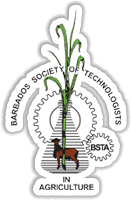
The argument has been made that we should give up farming in Barbados, our cost of production is too high and we can get food cheaper elsewhere. Here I’m going to give you a few reasons why you should support Bajan farmers and buy local.
Food security – The global population is growing and the impact of climate change will make farming increasingly challenging in many areas. Local farming provides a vital buffer against sudden changes in supply. Additionally, maintaining an industry with a core of workers and equipment with the know-how and capabilities to expand the industry is a vital hedge against the very likely possibility that global food scarcity will become a larger issue.
Health – Locally produced foods are generally whole-food, food which hasn’t been processed or only minimally processed. High consumption of processed food is being linking to a wide variety of medical conditions. When eating local whole foods you are consuming the freshest, most health food you can.
Safety – With many of the food contamination stories in the news, knowing who your food producer is, and the standards they are required to meet, gives confidence about the quality of the food you are buying for your family.
In order for an industry to maintain viability it must also maintain a certain size. It needs to be big enough for someone to be willing to import tractors and fertilizer, it needs to be big enough that it is worth someone’s time to learn how to repair tractors and other pieces of farm equipment. As the industry decreases in size, the shared overhead costs become more burdensome, decreasing the viability of the industry. Supporting the local agricultural sector through consumption and use of local produce is essential for its continued survival and flourishing.